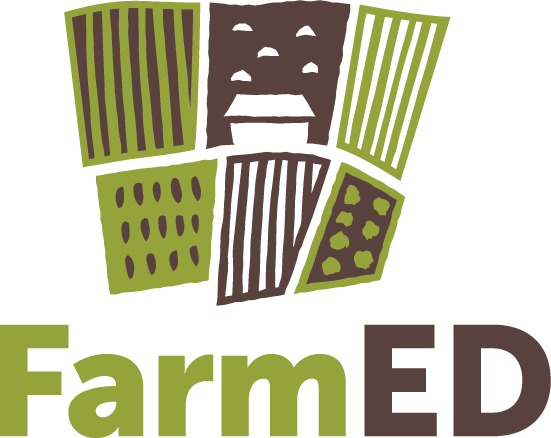The Wainwright Prize at FarmED
Sep 22, 2025
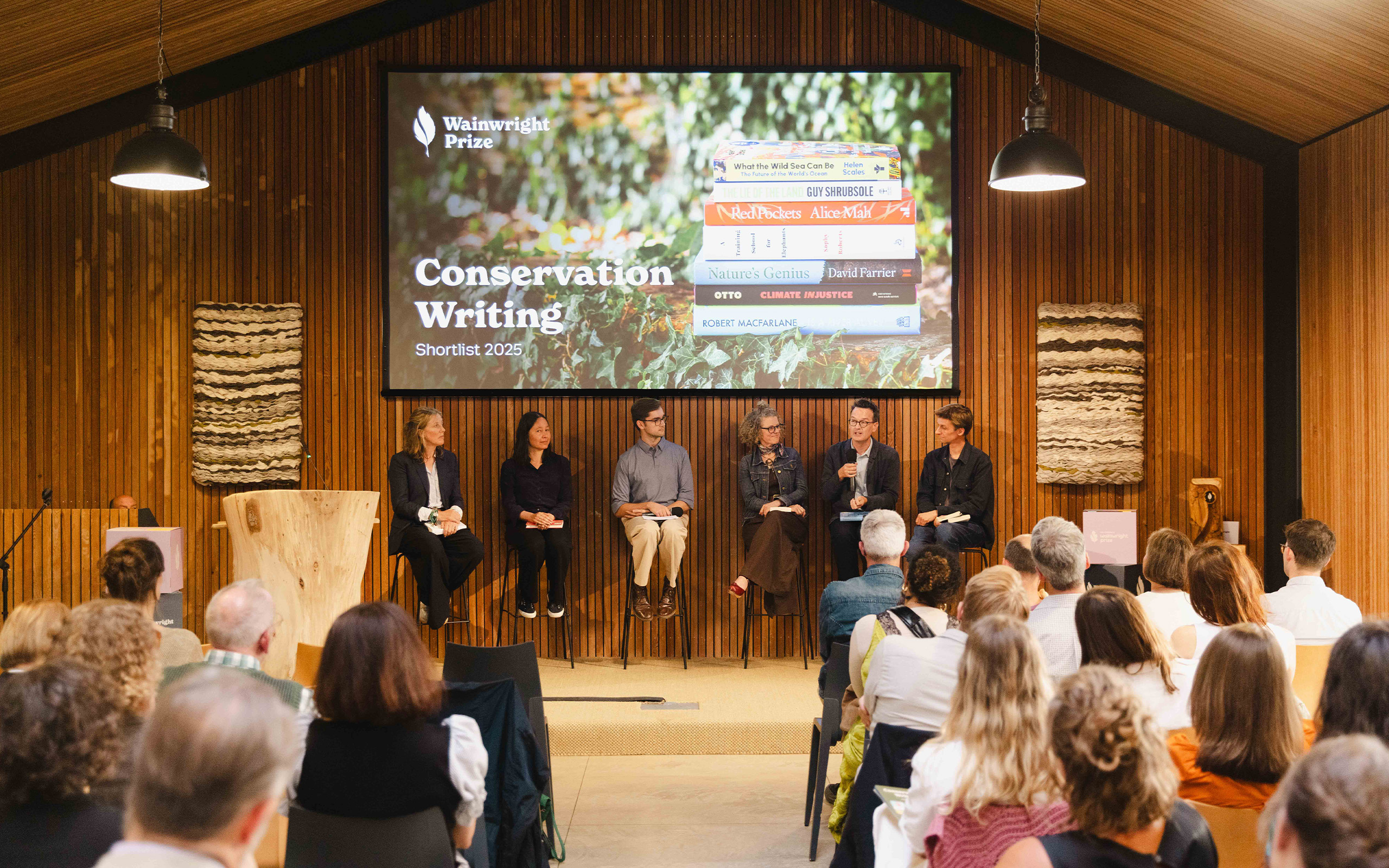
The Wainwright Prize is recognised as the world’s leading literary award for nature and conservation writing, so we were honoured and privileged to host the 2025 Wainwright Prize here at FarmED last week. We’re still processing how wonderful it was to share our eco conference barn, Cafe and farm with the shortlisted authors and to hear them talk about their books.
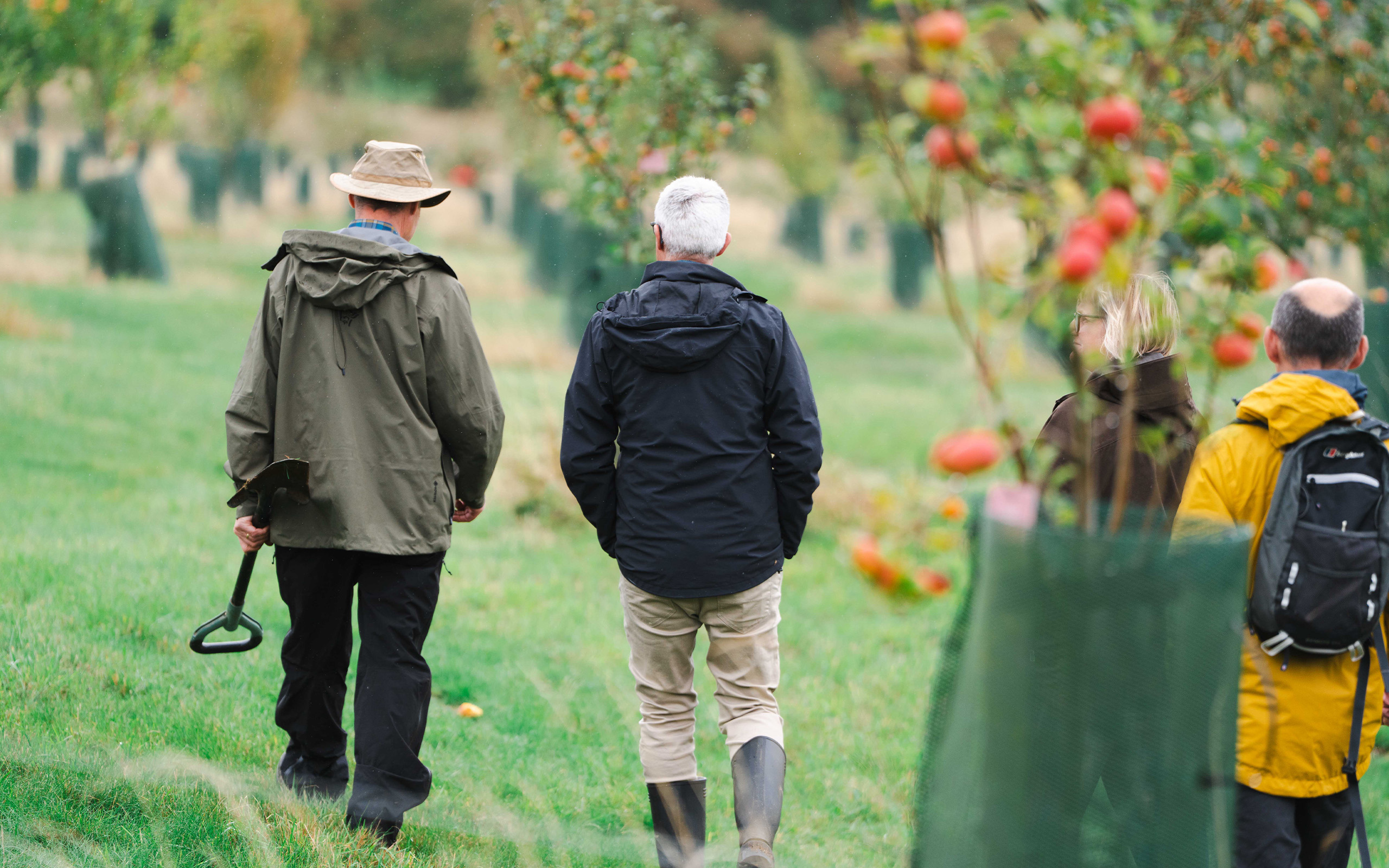
Guests began to arrive at FarmED in the early afternoon and despite a deluge of rain, many enjoyed a farm walk, led by FarmED Founder, Ian Wilkinson. They returned to the warmth and light of the conference barn and Cafe for English sparkling wine, provided by the sponsor Gusbourne Vineyard, and canapés before the ceremony got underway, hosted by Adam Henson.
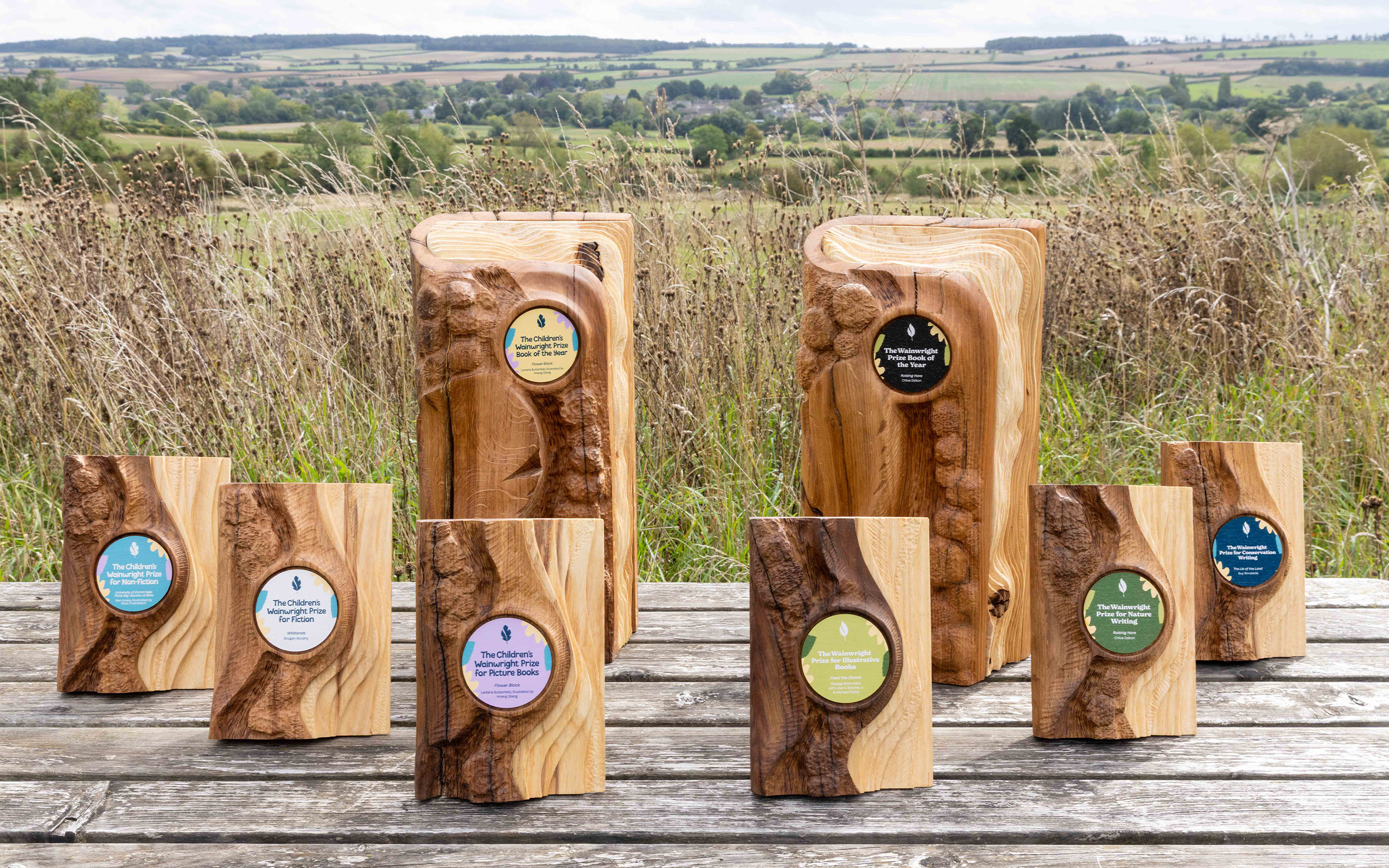
There are six categories of prizes, ranging from Nature Writing, Conservation Writing, and Illustrative Books to Children’s Fiction, Non-Fiction and Picture Books. The stories are many and varied, but what they all have in common is a truly inspirational message of hope for anyone who cares as deeply about the natural world as we do here at FarmED.
The Children's Wainwright Prize for Picture Books category judging chair and panel host was broadcaster and former Blue Peter presenter, Mwaka "Mwaksy" Mudenda. One of the Highly Commended books was Leave the Trees Please written by Benjamin Zephaniah and illustrated by Melissa Castillo, a breathtaking poem and story showing how trees offer us the perspective and connection to nature we crave in our daily lives. The late Benjamin Zephaniah’s wife, Qian Zephaniah, talked about his book and how in Birmingham The Zephaniah Forest has been planted to commemorate the renowned poet’s life and works.
‘Benjamin was a person who always used a simple word to deliver a profound message and this book is about nature and environmental protest. He wants to say that even one small voice can trigger a big influence,’ Qian said.
This was echoed by Sophy Roberts whose book A Training School for Elephants was highly commended in the Conservation Writing category. It tells how elephants were used in Asia to create a transport system to extract the continent's resources. ‘I was completely staggered by the fact that in the 19th century, when this was happening, there were 26 million African elephants on the continent. Now, there are between 400,000 and 500,000,’ Sophy told the assembled guests this week. 'I spent my entire academic career focused on cataloging a lot of harm, a lot of injustice. I think I hit a wall in thinking about the problems behind the climate crisis but I realised I was only looking at one part of the picture. There's so much joy and so there's so much love. The journey that I go on and arrive at, is the rekindling of faith in the power of hope, of the power of storytelling, the power of action, no matter how small and insignificant it might feel.’
The power of storytelling is another theme that resonated throughout the evening. The children’s authors all talked about how picture books and the power and magic of beautiful illustrations and fairy tales, offer a way to tackle huge topics.
Lanisha Butterfield won the Picture Book Award for Flower Block, which she described as being about, ’My frustration at growing up in a social housing community that I love. What I didn't see a lot of in my childhood was nature. You see lots of luxury apartment blocks going up now and they immediately have a rooftop garden. I wanted this to be a reminder that all communities deserve nature.’
The winner of the Wainwright Prize for illustrative Books is Feed the Planet by George Steinmetz, who spoke via video from New Jersey. ‘My hope is that by winning this prize, it will help to make people realize that food production is one of the most pressing environmental issues of our time.’
It was great to see Merlin Hanbury-Tenison, one of the recent guests on The FarmED Podcast, whose book Our Oaken Bones was shortlisted for the Wainwright Prize for Nature Writing. It’s the story of his family farm in Cornwall’s ancient rainforests and how, ‘how we can bring back our most folkloric, elegant, and beautiful habitat as part of our climate cycle, our diversity, but also one of the most beautiful places for humans to be able to heal and truly heal.’
Chloe Dalton won the overall prize for Raising Hare, 'a love song to the wild animal. It's a true story based on the experience I had raising a hare. It was free and my role was to try to not interfere in its life or to change its nature, so I suppose it's really a story I feel very strongly about as a woman,’ she said. She also had words of encouragement for budding nature writers. ’Every debut writer probably has imposter syndrome. I have a particularly acute case but if there’s an encouragement for anyone else, it’s that there is a role for the amateur and nature is there for all of us and it is our one true shared heritage and anyone out there who wants to write about nature, who might feel they're not qualified for it, like I certainly felt, should, I hope, think that this is for them too, it's for all of us.’
Chloe also wanted to end her acceptance speech with a plea for hares.
‘They are the only game species in England West that you can shoot at any time of the year, including during their breeding season, which is a fundamental principle of conservation - you don't kill an animal in their breeding season. If I could have a wish for everybody here, it is to see more hares. They are extraordinary creatures. We think we know them. They're on every tea towel or notebook you'll ever see. It's actually quite rare to see them, and their lives are wildly misunderstood. And that's one of the things I learned, and I wanted to share with the readers, is how extraordinary these animals are, how much beauty there is in the commonplace. It's not as significant as some of the other issues that other writers have raised, but a landscape that's safe for hares would be better for all nature.’
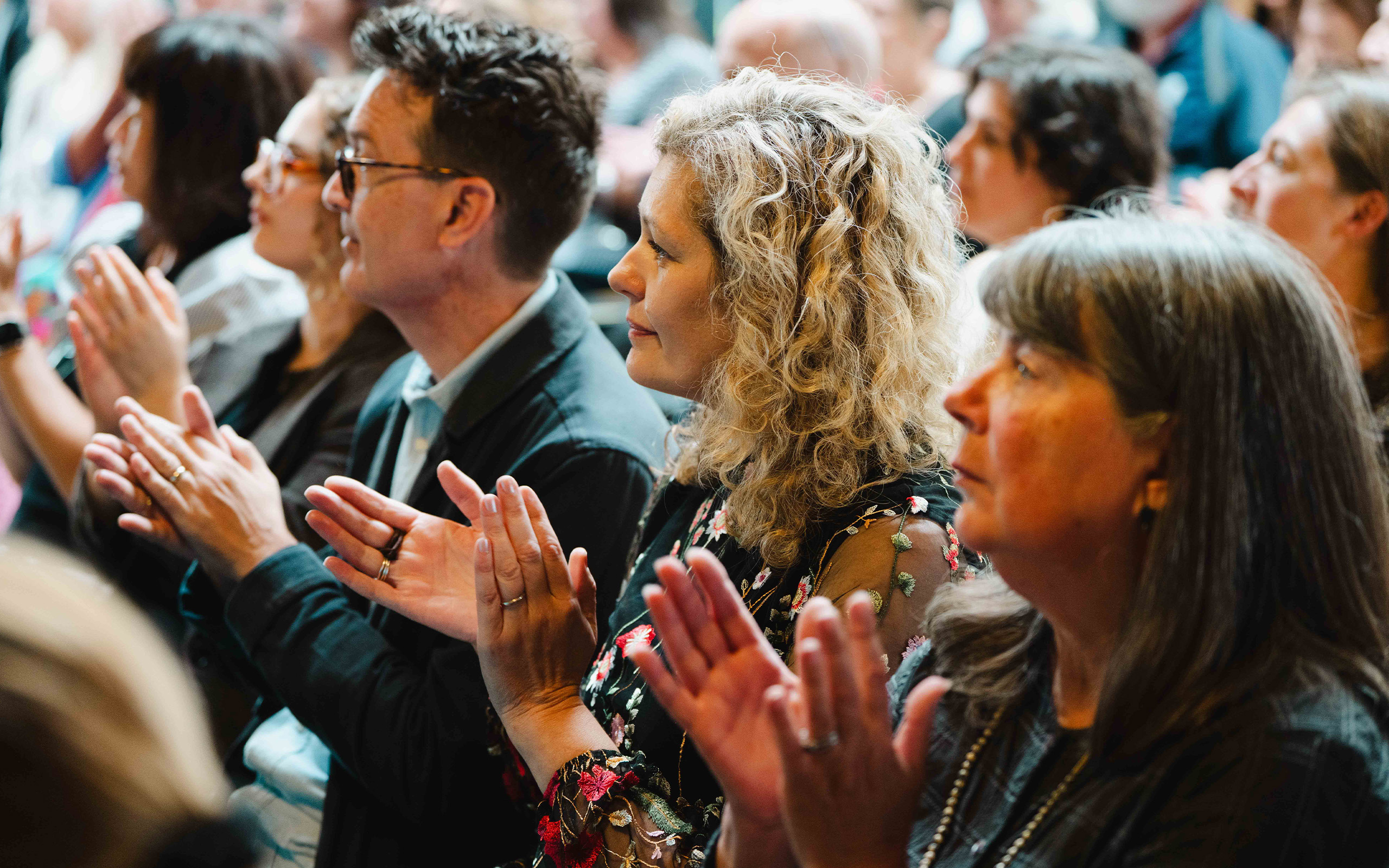
The Wainwright Prize for Conservation Writing was won by Guy Shrubsole for The Lie of the Land, which judges also described as a call to action. It’s a book about the nature crisis, about how we use our land and how we also misuse it.
’I think that doom and cynicism are ultimately the allies of reactionaries,’ Guy Shrubsole commented during his acceptance speech. ‘We have to find causes for hope to take action. In the spirit of quoting an excellent revolutionary, I will quote Lando Calrissian from Star Wars, which is that rebellion is built on hope. What he should have added is that rebellions are also built on spreadsheets and mailing lists and people getting organised. And hopefully, rebellions are also built on people reading books. It's certainly what I hope will happen when people read my books and all of the books that have been shortlisted for today's awards. Let's all go out and campaign for nature.'
’I came across the fact that human activity is now the driving force of evolution on this planet, and it really stunned me’, said David Farrier, author of Nature’s Genius, and he gave examples of how fish that have evolved immunity to the most toxic substances on the planet can tell us about our own relationship with pollution. ‘I had the privilege of talking to many amazing scientists, conservationists, architects, and more. It's about the way that many species around us are being forced to change, but it's also about our own incredible potential to live otherwise.’
Marine biologist Helen Scales, wrote What the Wild Sea Can Be to answer a question. ‘Often at the end of a radio interview or someone in an audience like this today, would put their hand up and say, are you hopeful for the future of the ocean? And I would find myself unable to give a really good answer to that question. It is full of wonders and joy and extraordinary things that we're learning so much about. But at the same time, I'm also studying all the problems that the ocean faces. So I never gave a very good answer to that question. Essentially this book is my 80, 000 word answer to that question. Am I hopeful for the future of the ocean? And spoiler alert, yes, I am hopeful, but I am also fearful. By the end of it, I genuinely have found a greater sense of balance in terms of fear and the worries. Guy (Shurbsole) talked about this idea of having pessimism of the intellect and optimism of the will. I think we've all come to this idea that we can't just be hopeful but we can commit to there being a better future.’
Brogen Murphy won the category of Children’s Wainwright Prize for Fiction for Wildlands which also presents a vision of a better future. The judges praised their book for being 'cinematic and heart -stopping, just full of hope and brimming with life’ and their acceptance speech pretty much sums up the power of books and storytelling and why awards like the Wainwright Prize are so vital.
‘I've been passionate about rewilding since I discovered it in my conservation degree,’ Brogen said. ‘So this story is set in the future, in the future that I want us to live in. My hope with this book was to help readers young and old refine that deep connection with the world that is all of our birthrights. The books that we read as children stay with us. And so those of us who write for young people have an opportunity and maybe even a duty in the worlds that we present to them. And this world can seem a pretty scary place at times. I wouldn't know how to explain it to a child. I don't know how to explain it because I don't understand it myself. But I do know how to dream of a better world. And I do know that we have to, if we are to have any hope left of creating one. That's why I paint a picture of a world where humans have learned to live in harmony with nature, and where people and the world around us are thriving because of it. Hope might seem naive, and writing stories might seem like a little pastime, but I actually think they are two of the most powerful tools we have. And my hope is that Wildlands will invite readers to not just dream of a better future, but to really believe that such a future is possible.’
Be part of the story. FarmED is hosting a series of literature events across the autumn, in partnership with our wonderful local bookshop Jaffe & Neale. Visit www.farm-ed.co.uk for more info.
Recent news items

